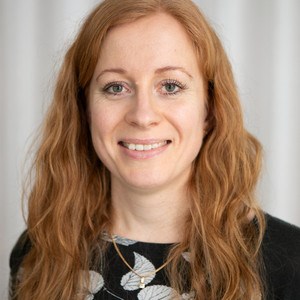Contact
njfak@slu.se, +46 18 67 10 00

Multi- and interdisciplinary research for complex issues
We are in the middle of the autumn semester, and following the focus placed on research applications this spring and summer, I have thought about how complex our issues actually are. Certainly, research has always concerned complex issues and created new knowledge to highlight them. However, it does not feel excessive to say that we have never faced such complicated issues as we do today.
Joint knowledge of global, environmental changes clearly point to the fact that we are in a critical stage, where we need to make society more sustainable (environmentally, socially and economically) as well as more resilient. This is also key for enabling us to live up to global agreements such as the Paris Agreement and the UN's 17 Sustainable Development Goals. Here, universities play a key role as organisations that generate needed knowledge. It's no small challenge for those of us who work here, but universities also represent the type of institutions that are best equipped to do this. As a matter of fact, we are trained in developing knowledge about complex issues; this is one of our strengths.
As I keep reflecting on this, I believe, now more than ever, that we need to cooperate across traditional academic subject areas. In general, this may involve integrating natural sciences (the function of biological natural resources) with social science knowledge on human psychological and cultural needs as well as knowledge about the economic systems humans use to organise their operations and create wealth. Additionally, we especially need collaboration that manages parts of the above. Inter- and multidisciplinary approaches are and will remain key for us on the research side to contribute fully to global, environmental change solutions.
At SLU and our faculty, we are joined by our general interest in biological, natural resources regardless of our subject area. Our faculty spans over a wide range of subject areas. This gives us a unique position to developing multi- and interdisciplinary collaboration that actively generates knowledge about how we as humans can manage these resources in a more sustainable way.
Does the need for multi- and interdisciplinary research mean that intradisciplinary development isn't important anymore? Not at all. Intradisciplinary development is needed to further fields and develop methods and theories that we can use in interdisciplinary and multidisciplinary collaboration. However, we generally need more multi- and interdisciplinarity. We also need to train our students at all levels to think more in inter- and multidisciplinary ways. In this case, I see SLU's work with making sustainable development a main field of study as a central initiative.
What are the challenges when developing multi- and interdisciplinary research? Naturally, we need to work together across our subject areas. Here, seminars and workshops are key. SLU's future platforms are good meeting places in order to initiate more multi- and interdisciplinary research. However, I also think that we need to start discussing, in depth, our scientific starting points relating to different fields and what they mean in relation to developing this kind of research. Imagine the exciting reflections this could lead to! A certain dose of responsiveness and will to view problems from various perspectives are necessary as well.
In my role as vice-dean, responsible for multi and interdisciplinarity at the NJ Faculty, I want to inspire more substantial collaboration. I want to hear from those of you who work at the faculty departments. What do you need in order to develop multi- and interdisciplinary projects? What is preventing you from taking the step? Feel free to submit your thoughts on this. Personally, I am since long an enthusiastic fan of inter- and multidisciplinarity after being part of several projects where economics and natural science are combined. This type of collaboration is so rewarding.
/Helena Hansson
Professor of agricultural and food economics
Vice-dean responsible for multi- and interdisciplinary research
njfak@slu.se, +46 18 67 10 00